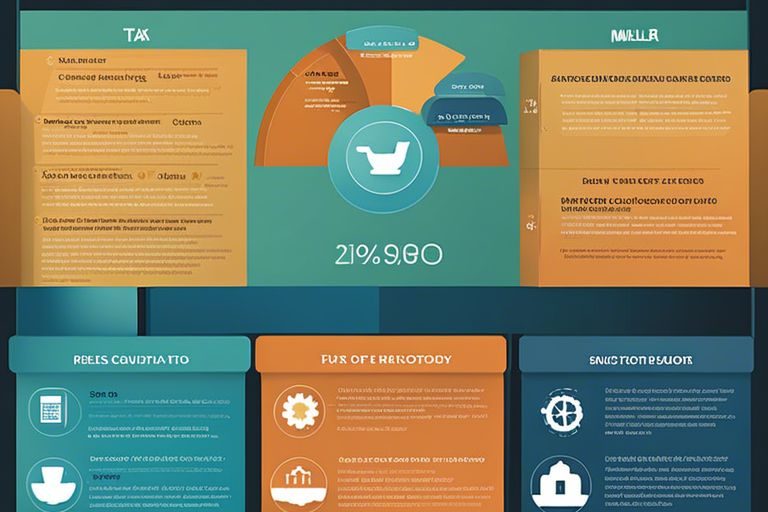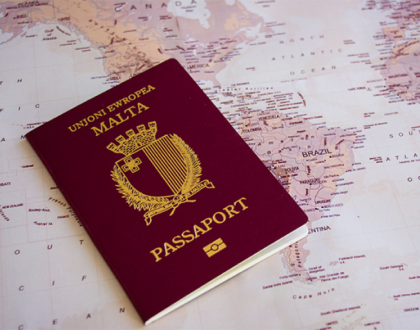Malta’s Business Tax Incentives Guide

This comprehensive guide will provide valuable insights into the various tax incentives available for businesses in Malta. Covering key aspects such as tax credits, exemptions, and reliefs, this detailed overview will help you navigate the complex world of business taxation in Malta with confidence and clarity.
Overview of Malta's Business Tax Incentives
Types of Incentives Available
Your business can benefit from a variety of tax incentives in Malta, including tax credits, reduced tax rates, and exemptions. These incentives are designed to attract foreign investment and promote economic growth in key sectors such as manufacturing, aviation, and research and development. Perceiving which incentives are applicable to your business can lead to significant cost savings and competitive advantages.
| Tax credits | Research and development incentives |
| Reduced tax rates | Investment tax credits |
| Tax exemptions | Training grants |
Eligibility Criteria for Businesses
Malta's business tax incentives are available to both local and foreign businesses operating in the country. Criteria such as the type of industry, size of investment, and job creation potential are taken into consideration when determining eligibility for these incentives. By meeting the necessary requirements, businesses can take advantage of the tax benefits offered by the Maltese government.
Criteria for eligibility include having a physical presence in Malta, complying with relevant regulations, and contributing to the local economy through job creation and investment. By satisfying these conditions, businesses can access a range of tax incentives that can significantly reduce their overall tax burden.
Step-by-Step Guide to Applying for Tax Incentives in Malta
| Preparing Necessary Documentation | Navigating the Application Process |
Preparing Necessary Documentation
Any individual or business looking to apply for tax incentives in Malta must start by gathering all required documentation. This includes proof of company registration, financial statements, and any other relevant paperwork as specified by the Malta Business Registry.
Navigating the Application Process
If you're ready to apply for tax incentives in Malta, the first step is to thoroughly review the application guidelines provided by the Malta Business Registry. It's crucial to accurately complete all forms and ensure that you meet all eligibility criteria before submitting your application.
Application processing times can vary depending on the complexity of your case and the volume of applications being processed. It's crucial to monitor the status of your application and be prepared to provide any additional information or documentation requested by the authorities to facilitate a smooth and successful application process.
Factors to Consider When Applying for Tax Incentives
One of the key factors to consider when applying for tax incentives in Malta is the eligibility criteria set by the Maltese government. It is crucial to thoroughly review these requirements to ensure that your business qualifies for the incentives. Additionally, you should evaluate the potential benefits that your business can gain from the tax incentives and how they align with your long-term goals.
- Eligibility criteria set by the Maltese government
- Potential benefits and alignment with long-term goals
Any discrepancies in meeting the eligibility criteria or a lack of alignment with your business goals could impact the success of your application for tax incentives.
Economic Sectors Most Benefited
When considering tax incentives in Malta, it is important to identify the economic sectors that are most benefited by the incentives. Certain industries may receive more favorable treatment or higher tax breaks, so understanding which sectors are prioritized can help you maximize the benefits for your business.
Long-term Financial Implications
Sectors such as manufacturing, technology, and tourism tend to benefit the most from Malta's tax incentives, as these industries are crucial for the country's economic growth and development.
Factors such as the stability and growth potential of your business, as well as the long-term financial implications of the tax incentives, should also be taken into account. It is important to assess how these incentives will impact your financial situation in the long run and whether they will contribute to the sustainable growth of your business.
Analysis of Pros and Cons
Once again, when considering Malta's business tax incentives, it is crucial to weigh the advantages and disadvantages before making a decision. Here is a breakdown of the pros and cons:
| Pros | Cons |
| Low corporate tax rate | Complexity of tax laws |
| Participation exemption | Minimal tax planning opportunities |
| Double taxation relief | High compliance requirements |
| Extensive double tax treaties | Perception of preferential treatment by EU |
| Investment tax credits | Potential impact on domestic tax revenues |
Advantages of Utilizing Malta's Tax Incentives
Even for small to medium-sized businesses, utilizing Malta's tax incentives can lead to significant cost savings and improved cash flow. The low corporate tax rate and participation exemption provide a competitive edge in the global market.
Potential Drawbacks
For businesses considering Malta's tax incentives, it is crucial to be aware of potential drawbacks. The complexity of tax laws and high compliance requirements can result in increased administrative burden and legal costs.
Utilizing the services of tax professionals and legal advisors can help navigate these challenges effectively, ensuring compliance while maximizing the benefits of Malta's tax incentives.
Conclusion
Considering all points discussed in this detailed guide on Malta's business tax incentives, it is evident that the country offers a wide range of attractive tax benefits for businesses looking to establish a presence in the region. From the highly competitive corporate tax rate to the various incentives and exemptions available, Malta provides a favorable environment for business growth and investment.
FAQs:
What types of tax incentives are available for businesses in Malta?
Tax credits, reduced tax rates, exemptions, investment tax credits, and training grants are among the incentives offered.
Who is eligible for Malta's business tax incentives?
Both local and foreign businesses operating in Malta can qualify, based on factors such as industry type, investment size, and job creation potential.
What documentation is required to apply for tax incentives in Malta?
Necessary paperwork includes proof of company registration, financial statements, and documents specified by the Malta Business Registry.
How long does the application process for tax incentives in Malta typically take?
Processing times vary but monitoring the application status and providing requested information promptly can expedite the process.
What are some potential drawbacks of utilizing Malta's tax incentives?
Challenges include the complexity of tax laws, high compliance requirements, and associated administrative burdens.
Recommended Posts

Peter and Sons Expands with Light & Wonder
October 4, 2024

Legal Win for Malta’s Citizenship Program
October 4, 2024

Why iGaming Brands Choose Malta
October 4, 2024




